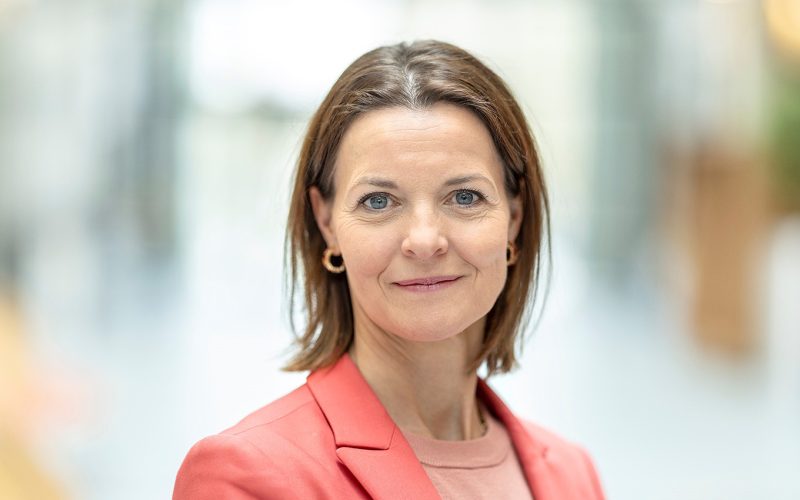Patricia Bruijning-Verhagen, last year appointed Professor of Epidemiology of Vaccination and Infectious Disease Control at UMC Utrecht, used her inaugural lecture to argue for a fundamental shift in how we approach infectious diseases and vaccination policy. Her message: infectious diseases are constantly changing — and so must we.
Viruses and bacteria continually evolve to evade our immune system. This antigenic drift and shift is why influenza vaccines need annual updates, and why zoonotic pathogens like H5N1 avian influenza can suddenly jump species. At the same time, host immunity changes too — through prior exposure, vaccination, or population-wide immune landscapes.
This dynamic interaction challenges the way we traditionally assess infectious disease burden and vaccine value. While Koch’s postulates once offered a clear framework to link pathogen and disease, today we understand that infection can play a more complex, long-term role in chronic conditions such as multiple sclerosis, dementia and even cardiovascular disease.
During her clinical years as a pediatrician, Bruijning-Verhagen witnessed the significant, often underestimated impact of rotavirus gastroenteritis. Hospital admissions, parental stress, disrupted family life — these effects were traditionally ignored in early vaccination policies that focused solely on preventing mortality or lifelong disability.
Her PhD research demonstrated that rotavirus vaccination in the Netherlands could prevent thousands of hospital admissions annually. Still, it took over a decade to shift the perception that this was not a “serious enough” disease to warrant routine vaccination. In 2023, the vaccine was finally added to the national immunization program.
Recent findings from Patricia’s team show that influenza infection can increase the short-term risk of myocardial infarction sixfold in older adults. It raises important questions: can flu vaccination prevent heart attacks? Should cardiologists routinely recommend it to their patients? Transdisciplinary research on the link between non-communicable diseases and common infections such as influenza is needed to understand their broader health impact and how vaccination can modulate this.
Her group also studies how viral infections interact: an initial infection may transiently protect against subsequent unrelated viruses. These viral–viral interactions are rarely accounted for in vaccination policy, but may significantly influence epidemic dynamics. Mathematical models are being developed to simulate these effects.
Bruijning-Verhagen emphasizes the need for better pandemic preparedness — not only in terms of stockpiling or surveillance, but also research readiness. Clinical studies must become more agile and harmonized across borders. AI, data science and innovative research methodologies can accelerate knowledge generation, but academic and political barriers remain.
Finally, she addresses the decline in public trust in vaccination. “Vaccines don’t save lives — vaccinations do,” she said. Health professionals remain trusted sources. Empowering them to speak confidently about vaccination, even in brief moments, can make a difference.
Patricia concluded that a more multidimensional view on infectious diseases is urgently needed; one that considers the broader health effects, as well as the societal and biological context in which they operate and where vaccination is seen as a healthy life-style intervention, similar to exercise, healthy diet and stop smoking.
Prof. dr. Patricia Bruijning-Verhagen is a pediatrician and epidemiologist appointed at University Medical Center Utrecht, the Netherlands as full professor in Vaccination and infection Control Epidemiology. Her research on (emerging) infectious diseases has a strong focus on public health and policy. One of the key priorities in her work is designing and evaluating optimal infection preventions strategies for children through vaccination and other infection control strategies. For this, she studies dynamics of (emerging) infectious diseases in the community, in particular the role of children, and the effects of vaccination and mitigation interventions through epidemiological studies. She has led several (European) population transmission studies on COVID-19. She was the PI of several large scale vaccine studies on rotavirus, pneumococcal, influenza and COVID-19 vaccines. She has participated in multiple European research consortia on emerging infections funded by the Innovative Medicine Initiative and the European Commission (ZIKAction, OneHealth-PACT, RECOVER, COVID-RED, VERDI, VACCELERATE). With a personal career grant (NWO VIDI) she studies interactions between key respiratory virus infections in children and implications for vaccination policies. Her strong engagement in the translation of science into policy is further evidenced by her contribution to numerous vaccine guidelines, her advisory role for the Dutch Health Counsel committee on vaccination, and her involvement in governmental and clinical advisory committees on COVID-19. She coordinates and teaches MSc courses in infectious diseases epidemiology and vaccines (Utrecht University, McGill University) and vaccinology masterclasses for healthcare professionals (Stichting Vaccinology Masterclass, board-member). She communicates actively on social media about infectious diseases and vaccines and is frequently invited to talk about science on national television, radio and in newspaper or magazine articles. She has published >100 peer-reviewed papers and scientific reports.
